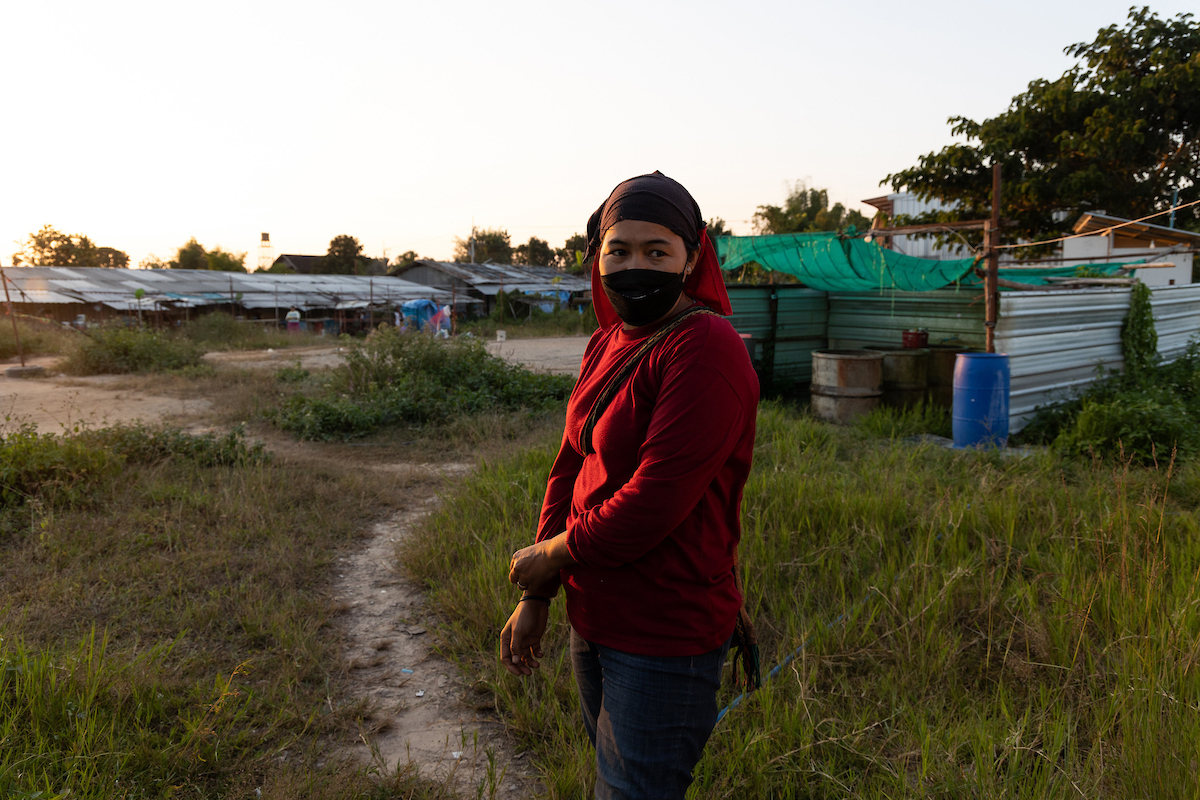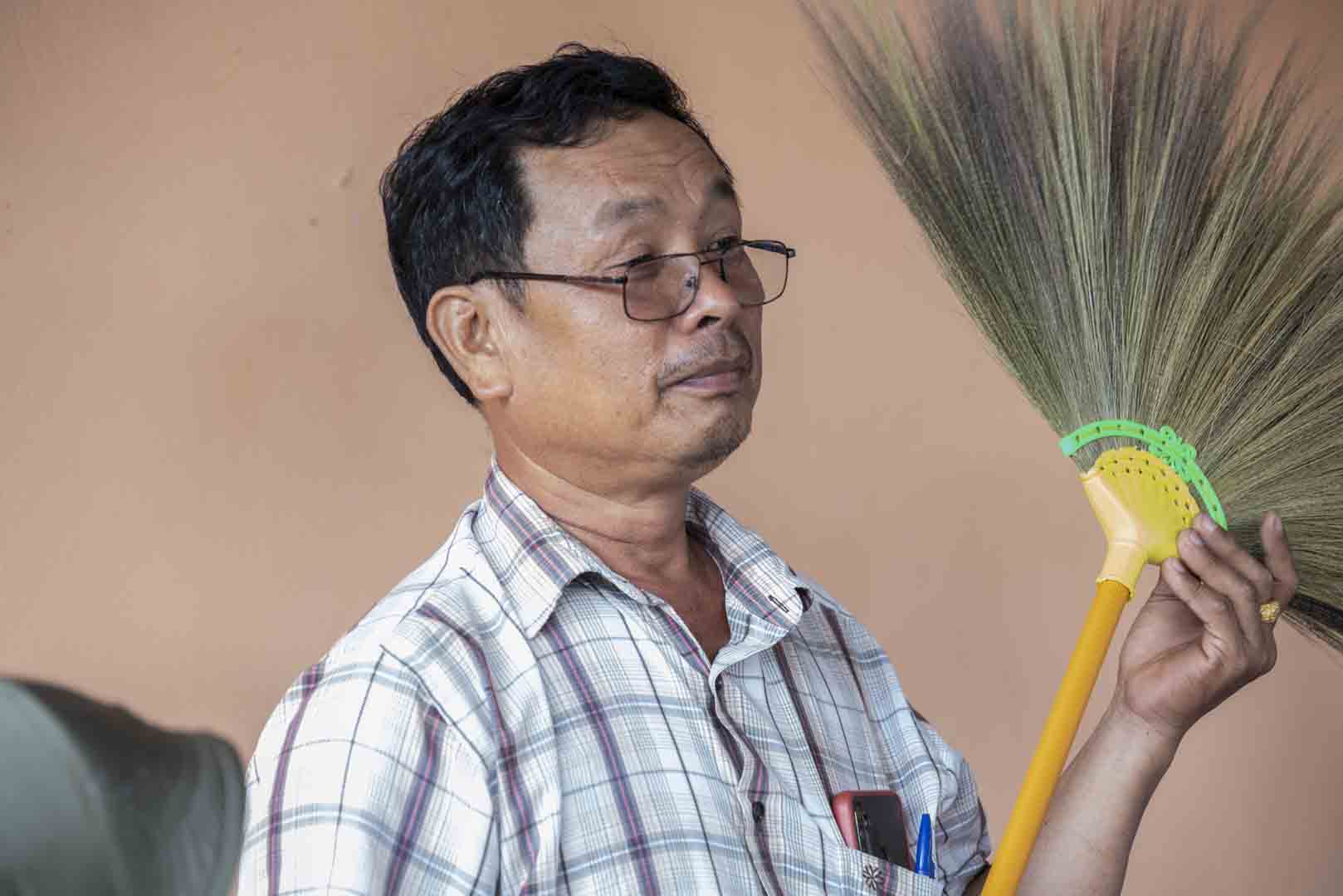Aye Mi San left her village outside of Mandalay in Myanmar to find work and the promise of better life and pay in Thailand.
Leaving home at 18, Aye Mi San arrived in Mae Sai, Chiang Rai province and continued to Bangkok. After obtaining a pink ID card, she worked in Bangkok as a domestic worker for three years, being paid 6,500 baht a month. As a domestic worker, she had no access to social security, health care, and was paid below minimum wage for Bangkok at 331 baht per day. Nonetheless, she felt lucky because this job was better than what she could have gotten back home. Not long after, Aye Mi San met her husband, a construction worker, and decided to follow her husband to Chiang Rai, where they settled.

She found work at a construction site, earning as little as 240 baht per day, less than the legal minimum wage of 315 baht in Chiang Rai. Knowing they were not being paid minimum wage, a group of workers at her workplace joined together and collectively asked for a pay increase from the employer. However, the employers refused the pay increase and asked the workers to leave the construction site if they did not accept the current pay rate.
Aye Mi San remained at the site, knowing she will get fired if she bands together with her coworkers. Due to her circumstances and the need to send money home, Aye Mi San has no choice but to continue to work at the construction site. She wishes to return to Myanmar with her family but the political unrest in Myanmar, combined with the COVID-19 situation and border closings, means she must stay in Thailand for now. Each day she grows more and more frustrated with her situation and dreams of a better future.
“If Myanmar is better, I would go straight home. I didn’t expect to be here this long.”
Photo by Luke Duggleby






